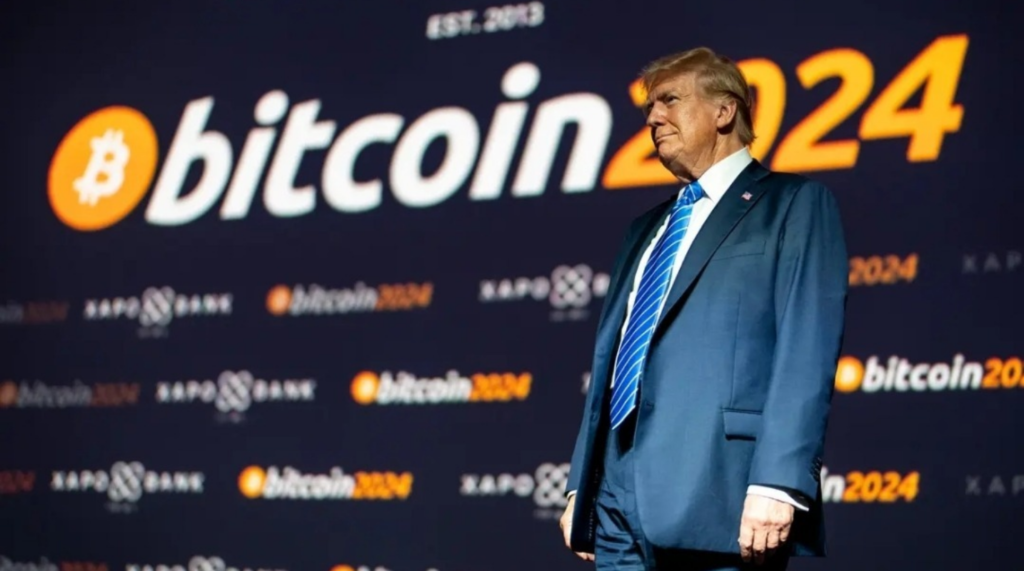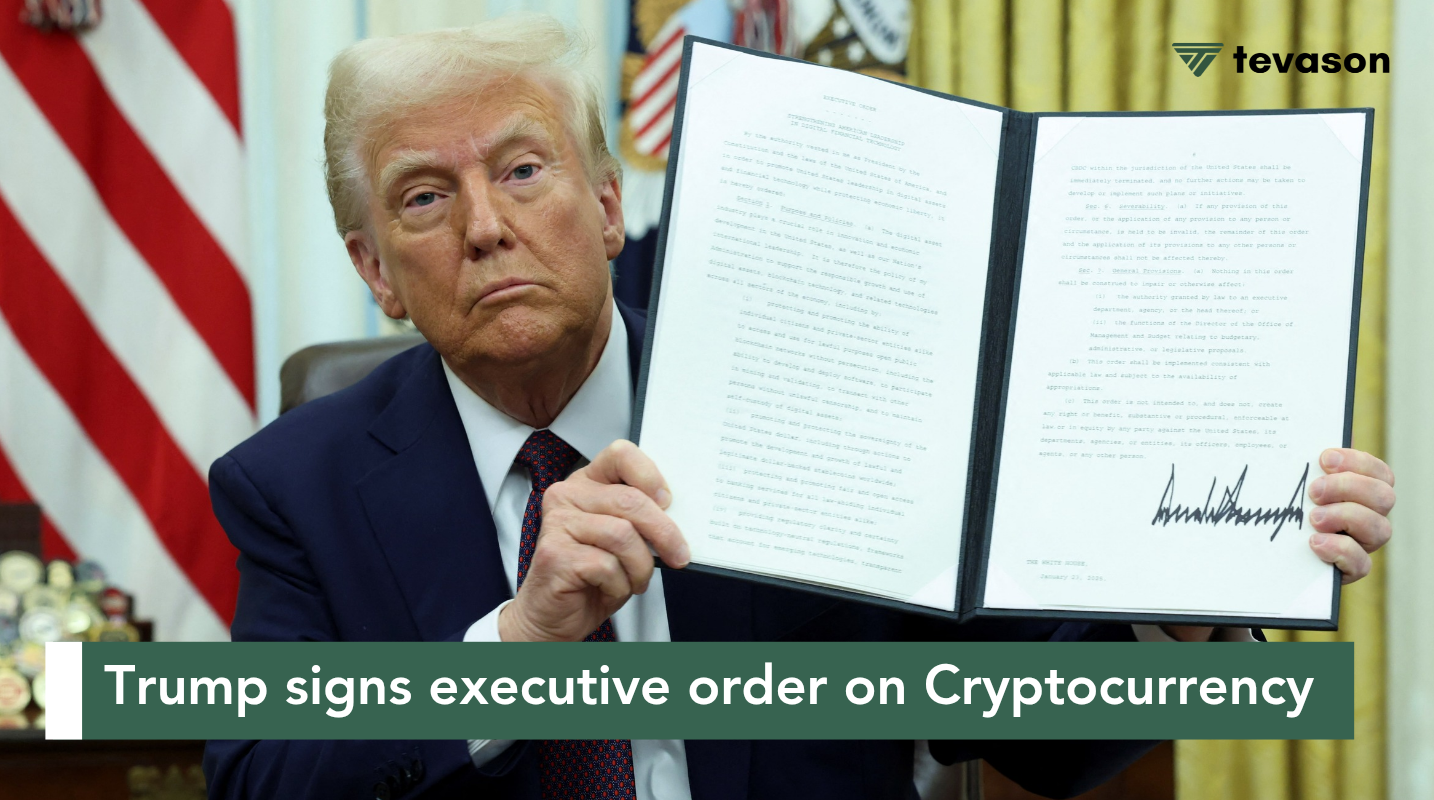The order indicated the president’s intention to support an industry that faced challenges under the Biden administration, highlighting his personal interest in its success.
On Thursday, 23rd January, President Trump signed an executive order aimed at fostering the growth of the cryptocurrency industry. The order calls for a new strategy to regulate the sector, in which Trump has significant personal investments.
The directive proposes the creation of a working group to draft a comprehensive plan, including regulatory and legislative recommendations. It also suggests establishing a government-controlled national cryptocurrency reserve, an idea the industry has been advocating for.
Highlighting the industry’s importance, the order states,
“Digital assets are vital to innovation, economic growth, and maintaining U.S. global leadership. Supporting their responsible development is a key policy priority.”

President Trump holds a significant personal interest in the cryptocurrency industry. Last year, he and his sons co-founded a crypto company, World Liberty Financial, which launched a new digital currency called WLFI. Recently, both he and his wife, Melania, began selling memecoins, a type of cryptocurrency inspired by internet memes or celebrity mascots.
These ventures have sparked criticism from ethics experts, who highlight potential conflicts of interest. By shaping cryptocurrency policies, Trump could directly benefit from his business endeavors. He has pledged to reverse the Biden administration’s regulatory actions against crypto companies and has appointed officials to federal agencies who appear inclined to support the industry’s growth.
In his executive order, Trump emphasized his administration’s commitment to “protecting and promoting” the crypto sector. He promised to ensure fair banking access for crypto businesses, addressing concerns about banks denying accounts to such companies. Following the order, the SEC promptly reversed accounting guidelines that had discouraged banks from engaging with crypto firms.
One notable aspect of Trump’s executive order is its ban on creating a government-controlled Central Bank Digital Currency (CBDC), a concept opposed by many cryptocurrency enthusiasts. Trump had pledged to outlaw CBDCs during his campaign. However, crypto researcher Molly White observed that no federal agency has seriously pursued such a currency, describing the order as “mostly symbolic.”
Although Trump was initially critical of Bitcoin, dismissing it in the past, he has since embraced digital currencies. On the campaign trail, he received significant financial backing from the crypto industry, which contributed over $130 million to high-profile congressional races. At a Bitcoin conference in July, Trump pledged to make the U.S. the “crypto capital of the planet.”
Since taking office, Trump has worked to overhaul regulatory agencies that previously targeted crypto companies under the Biden administration. In December, he appointed a new SEC chair with close ties to the crypto industry and selected venture investor and cryptocurrency advocate David Sacks to lead his administration’s policies on artificial intelligence and digital currencies.
Just hours before Trump’s inauguration on Monday, 20th January, Bitcoin’s price skyrocketed to a record high of over $109,000, as cryptocurrency supporters hailed him as the first “Bitcoin president.”

Leave a Reply